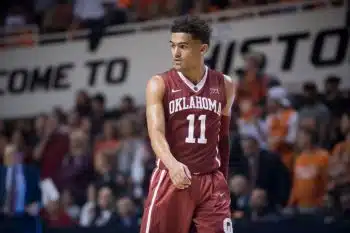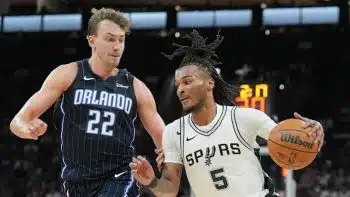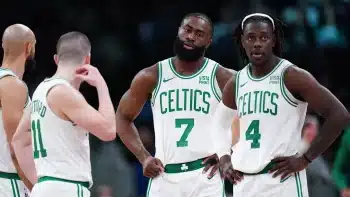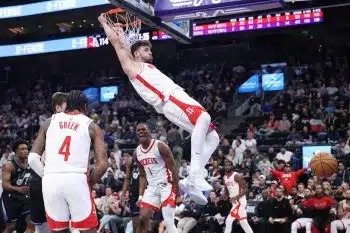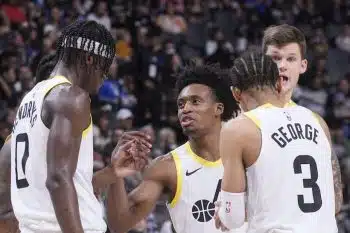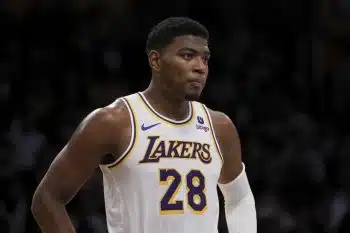NBA
NBA AM: Former Players Turned Owners
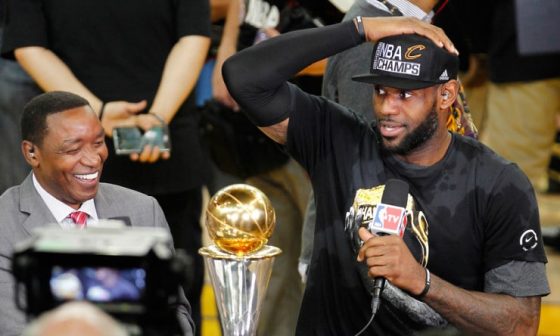
Earlier this week, LeBron James reappeared for the first time since agreeing to his three-year, $100 million deal with the Cleveland Cavaliers to guest-star on Uninterrupted’s “Open Run” podcast and talk about a number of things, including what he sees for his life after basketball.
In that interview, James admitted that when he does retire from the game – likely at some point over the course of the next decade – he’d like to look into at least partial ownership of an NBA team.
“I would love to be a part of a franchise, if not at the top,” James said. “My dream is to actually own a team.”
There won’t be much stopping him, as James is the most prodigious active earner both in terms of annual salary and endorsement contracts, and while he likely never will be able to piece together the $3+ billion he’ll need to buy a team all on his own 10 years from now, he’s got more than enough to buy into a minority stake. Frankly, there aren’t many teams that wouldn’t love to have him as a figurehead of the franchise, and his desire to move into an ownership position is far from unprecedented.
The following are a list of players who have bought teams (or parts of teams, rather) in the years following their retirements. Seeing an NBA player actually own a piece of an NBA team is rare, but plenty of big-name stars have bought franchises in a number of different sports:
LeBron James, Liverpool FC – James may truly long for a piece of NBA ownership somewhere down the road, but his active status as an NBA player hasn’t stopped him from getting into sports team ownership in other arenas. He already owns a small stake of Liverpool FC, one of the most popular soccer clubs in the Champions League.
In April of 2011, James teamed up with Fenway Sports Group, which also owns the Boston Red Sox, after they had purchased the team for $488 million in October of 2010. James got his mitts on a minority stake in the FC, marking the first time that a professional athlete in his prime invested in a sports franchise with the popularity and breadth of Liverpool. He remains a minority owner to this day and is doing quite well with his investment. Getting a stake in an NBA team would only broaden his horizons as a business mogul.
Michael Jordan, Charlotte Hornets – Of course, the king of all basketball business moguls is Michael Jordan, who became majority owner of the then-Charlotte Bobcats for $275 million back in 2010. He had been a minority investor dating back to 2006, but when former owner Bob Johnson couldn’t justify bleeding tens of millions of dollars every year, he sold it to the state of North Carolina’s most famous basketball icon.
Jordan assumed $150 million in debt in the transaction, but considering the most recent Forbes valuation for the team was $750 million, it looks like His Airness already has made a rather significant return on his investment. The Hornets are the fifth-least valuable team in the league, but they’re already exponentially more valuable than they were six years ago when Jordan bought the team.
Shaquille O’Neal, Sacramento Kings – The only other former NBA player to own any part of an NBA team is O’Neal, who threw in a fair chunk of change as part of the investment group that purchased the Sacramento Kings from the Maloofs in 2013. According to Forbes, O’Neal only owns between two-to-four percent of the team. It wasn’t a huge investment, but the value of the team already has jumped from $534 million at the time of sale a few years ago to over $800 million in Forbes’ most recent estimate for the team. The math says that O’Neal has made somewhere in the neighborhood $5 million to $11 million in just a few years without having had to do much, so while some believe his ownership investment was mostly a PR stunt to help get a new arena built in Sacramento, he really has raked in a little easy cash to supplement his TV checks.
Magic Johnson, L.A. Dodgers – Arguably the most successful team owner on this list, Johnson was a major player in the group that purchased the L.A. Dodgers for a record $2.15 billion back in the spring of 2012. Magic “only” put in $50 million of that money, but he’s been a figurehead for the organization and has been vital in recruiting free agents despite his relatively meager stake in the team, which would only equate to about 2.3 percent ownership. Even still, he’s the only former NBA player to ever own any stake in a Major League Baseball team, and for him to further endear himself to the City of Los Angeles will do nothing to hurt his legacy as arguably the most beloved athlete that city has ever known.
Yao Ming, Shanghai Sharks – Occasionally, former players invest in professional teams outside of the United States, as well, which Yao proved when he seized the opportunity to play for his former pro team in China, the Shanghai Sharks. Yao actually grew up in Shanghai, so when news began to leak that a few failing seasons (both financially and on the court) might cause the organization to fold, he stepped in and rescued them from ruin. As of 2008, Yao was ranked as the wealthiest Chinese entertainer with tens of millions of dollars to his name, so purchasing the team that gave him his start as a pro probably felt like as safe an investment as anything. He still spends a lot of time with the team as a figurehead for the organization, and he’s helped bring in big names too. Gilbert Arenas, Michael Beasley, Delonte West and John Lucas III have played for Shanghai since Yao took over.
Tony Parker, ASVEL – Like Yao Ming, Tony Parker decided to become the owner of a team from his home country. Parker first bought a 20 percent stake in ASVEL back in 2009, and then he decided to suit up with the team in 2011 during the NBA lockout. This led to Parker becoming the majority shareholder in 2014 and eventually take on the role of president as well. At 34 years old, Parker is likely nearing the end of his NBA career; however, his shares and role with ASVEL ensure that he stick around the sport for many years to come even when his playing days are over.
Amar’e Stoudemire, Hapoel Jerusalem – One fun fact about Stoudemire is that he’s part Hebrew on his mother’s side, and in 2010 he took a pilgrimage to Israel to get in touch with his roots a little bit and see the extensive religious history there. He was affected enough by his experiences to team up with Ori Allon to purchase a professional basketball team in Jerusalem back in 2013, and it’s something he enjoyed quite a bit until this past summer when he retired from the NBA, sold his shares to Allon, and agreed to actually play for Hapoel Jerusalem in 2016. That means he’s not currently an owner of the team, but one gets the sense that as soon as he’s finished playing Allon will be happy to get him involved once again on the ownership side of things. The more a big name like Stoudemire is present around a small-time team like that, the better it is for business.
Steve Nash, Vancouver Whitecaps, RCD Mallorca – While Nash hasn’t shown much interest for ownership in basketball franchises, he does actually own stakes in not one but two professional soccer clubs. He started with his share of the Vancouver Whitecaps of Major League Soccer back in 2005, which came as part of a group of investors that also included Jeff Mallett, Steve Luczko and Greg Kerfoot.
Then, more recently, he and Phoenix Suns owner Robert Sarver pitched in to purchase Spanish football club Real Mellarco for a shade over $21 million. They had tried to purchase Levante a year earlier but failed, but men driven to spend their money will find a way to do so. Now Nash, a well-known die-hard soccer fan, gets to enjoy ownership of a soccer club not just in his native country but also overseas.
Jamal Mashburn, Ol Memorial Horse Stable – While it’s not quite the same as owning a sports franchise, Mashburn and former University of Kentucky coach Rick Pitino are partners in owning Ol Memorial Stable, which did at one point serve as the home of a Kentucky derby hopeful that went by the name of Buffalo Man.
Mashburn is a great example of how NBA players can have successful entrepreneurial lives after basketball. Today he owns 37 Papa John’s restaurants, 34 Outback Steakhouse restaurants, two car dealerships and a real estate company. Like everyone else on this list, he’s putting his playing checks to good use in life after hoops.
***
Should James someday earn a small stake in the Cavaliers or some other random franchise for sale, he’ll join the very small ranks of former NBA players that managed to eventually own an NBA team. So far, it’s just Jordan and Shaq, but there’s no reason King James couldn’t join that list as a way to enjoy his retirement.
